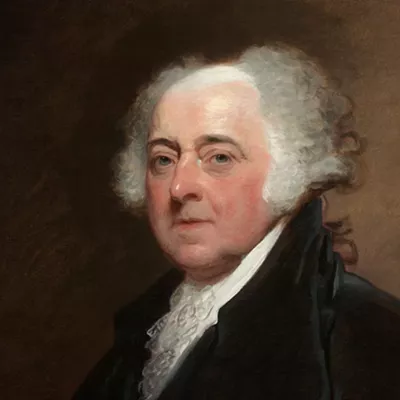
One of the year's most hotly anticipated movies hit theaters on Nov. 22. Weighing in at a little under three hours and with a budget of $200 million, veteran filmmaker Ridley Scott's Napoleon promised to tell the epic tale of one of history's most famous figures. Movie critics have praised the exciting spectacle of the battle scenes, but it has received a mixed reception from moviegoers, who currently score Napoleon 3.4 out of 5 on rottentomatoes.com.
Historians, however, have savaged Napoleon. French scholars have accused the British-born Scott of indulging his Anglophone prejudices in his depiction of history's most famous Frenchman. Biographer Patrice Gueniffey argued that Scott's Napoleon offered a "very anti-French and very pro-British" interpretation of the emperor, ignoring his many achievements in modernizing French civil society. British historian Andrew Roberts, however, was no more forgiving. He accused Scott of regurgitating the outdated trope that Napoleon was a megalomaniac who served as a prototype for Adolf Hitler and the greatest crimes of the 20th century.
Scott is having none of it. The notoriously irascible director has dismissed criticism that his movie is historically inaccurate by inviting historians to "get a life." In a recent BBC interview, Scott challenged his critics by asking, "Were you there? Oh, you weren't there. Then how do you know?"
That is not how history works. And Scott knows it. In the same interview, he noted that over 10,000 books have been written about Napoleon Bonaparte. Presumably, he doesn't think that they were all authored by eyewitnesses to history. Historians access the past through different kinds of primary sources. Traditionally, these sources are written documents from the time, which in the case of an elite military and political leader like Napoleon, will number in the tens or hundreds of thousands.
At the end of the day, Scott doesn't care if his movie is historically accurate or not, just so long as it is critically and commercially successful. He answers to studio and network executives, not professional historians or an abstract sense of truth. And what does it matter anyway if a movie about Napoleon has a complicated relationship with the truth if the audience enjoys the show? Movies are a form of entertainment, not history lessons.
Would that it were. While Scott will lose no sleep over his problematic rendering of Napoleon's life, historians should be alarmed because movies play an outsized role in shaping popular understandings of the past. Through cinematic magic, Scott and his fellow directors gain access to mass audiences who are voracious consumers of popular history but are often not equipped to tell truth from fiction.
Scott is by no means the first director to play fast and loose with history. Ask historians and you'll find that they think that most historical movies are flawed to some extent. Often these criticisms can seem pedantic. Though depicted in Napoleon's opening scene, Bonaparte wasn't present at the execution of Marie Antoinette, for example. So what?
The problem is that scholars are not always good at explaining the inaccuracies that really matter and those that are less important. For example, Napoleon does not address the emperor's reinstatement of slavery in France's Caribbean colonies in 1802, which reignited a brutal race war in Haiti (and indirectly helped to secure the Louisiana Purchase for the United States) that killed tens of thousands of people. This matters not only for the sake of correcting the historical record, but also because it helps to explain the deep historical roots of the gang violence in 21st century Haiti.
History is too important to leave to movie directors. We should not expect movie moguls like Ridley Scott to be history teachers, even when they flirt with interpreting the past. Historians need to find ways to reach broader audiences on their own terms. Some already have. The "Historians at the Movies" podcast (historiansatthemovies.com) just put out an episode dedicated to Napoleon in which' experts on French history discuss the movie's hits and misses.
But triage efforts like these only respond once the damage has already been done. Above all, historians need to remind people that the truth is more entertaining than fiction. You shouldn't have to make things up about the past to be able to tell a great story. ♦
Lawrence B.A. Hatter is an award-winning author and associate professor of early American history at Washington State University. These views are his own and do not reflect those of WSU.























